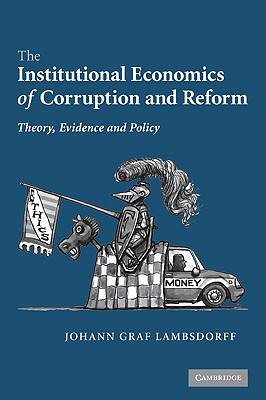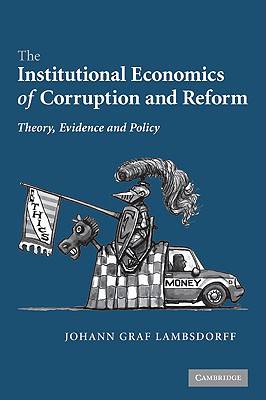
- Afhalen na 1 uur in een winkel met voorraad
- Gratis thuislevering in België vanaf € 30
- Ruim aanbod met 7 miljoen producten
- Afhalen na 1 uur in een winkel met voorraad
- Gratis thuislevering in België vanaf € 30
- Ruim aanbod met 7 miljoen producten
Zoeken
The Institutional Economics of Corruption and Reform
Theory, Evidence and Policy
Johann Graf Lambsdorff
Paperback | Engels
€ 82,45
+ 164 punten
Uitvoering
Omschrijving
Corruption has been a feature of public institutions for centuries yet only relatively recently has it been made the subject of sustained scientific analysis. Lambsdorff shows how insights from institutional economics can be used to develop a better understanding of why corruption occurs and the best policies to combat it. He argues that rather than being deterred by penalties, corrupt actors are more influenced by other factors such as the opportunism of their criminal counterparts and the danger of acquiring an unreliable reputation. This suggests a novel strategy for fighting corruption similar to the invisible hand that governs competitive markets. This strategy - the 'invisible foot' - shows that the unreliability of corrupt counterparts induces honesty and good governance even in the absence of good intentions. Combining theoretical research with state-of-the-art empirical investigations, this book will be an invaluable resource for researchers and policy-makers concerned with anti-corruption reform.
Specificaties
Betrokkenen
- Auteur(s):
- Uitgeverij:
Inhoud
- Aantal bladzijden:
- 304
- Taal:
- Engels
Eigenschappen
- Productcode (EAN):
- 9780521068673
- Verschijningsdatum:
- 10/07/2008
- Uitvoering:
- Paperback
- Formaat:
- Trade paperback (VS)
- Afmetingen:
- 152 mm x 226 mm
- Gewicht:
- 453 g

Alleen bij Standaard Boekhandel
+ 164 punten op je klantenkaart van Standaard Boekhandel
Beoordelingen
We publiceren alleen reviews die voldoen aan de voorwaarden voor reviews. Bekijk onze voorwaarden voor reviews.








